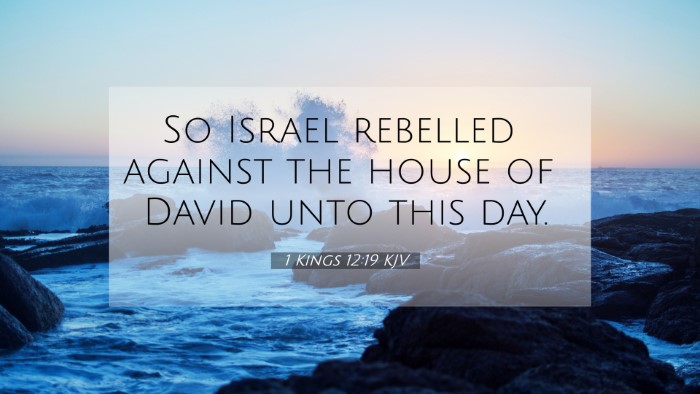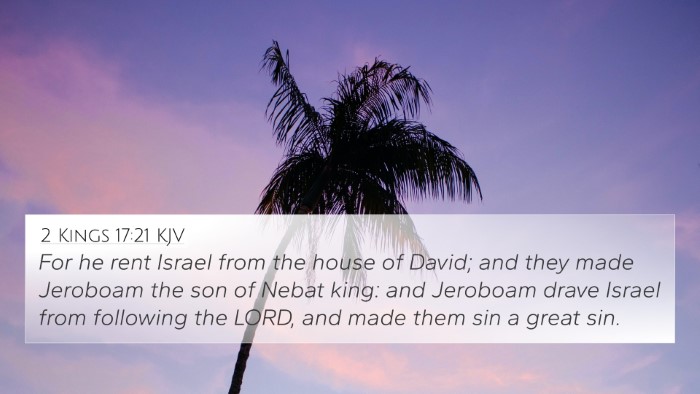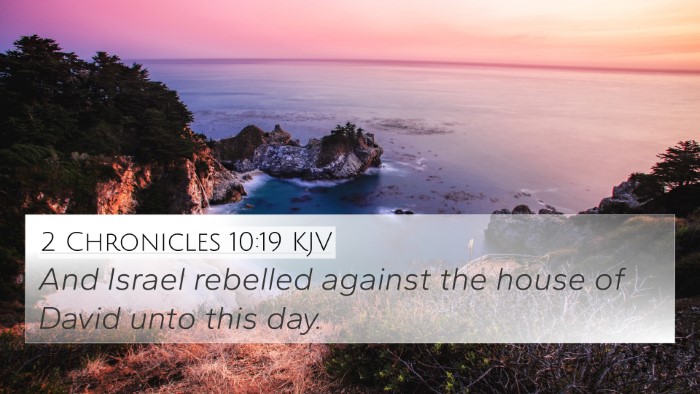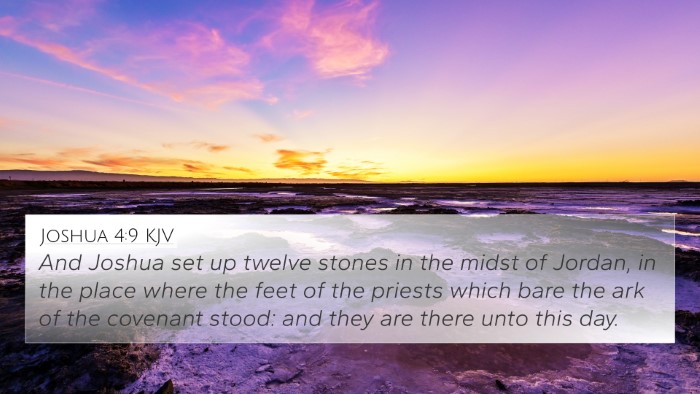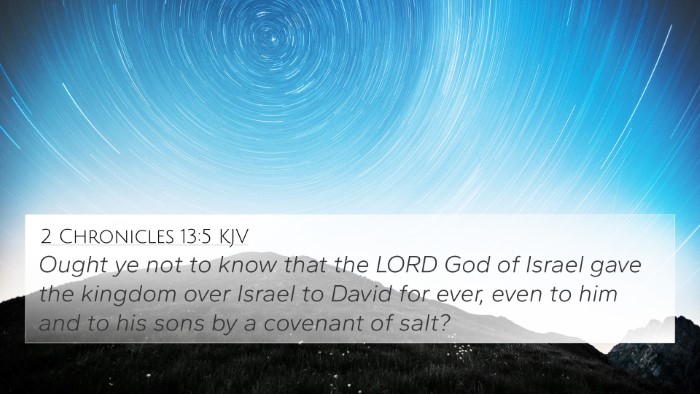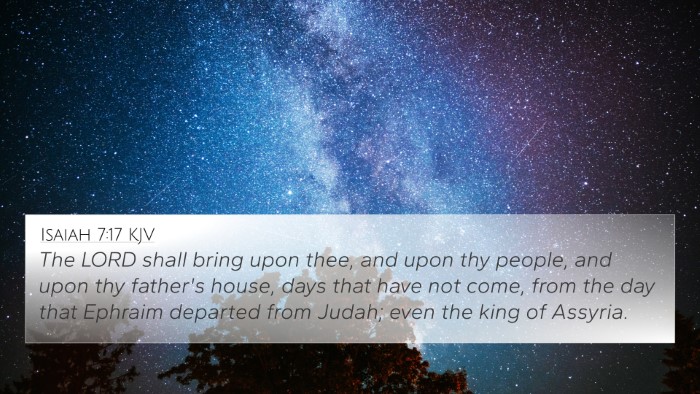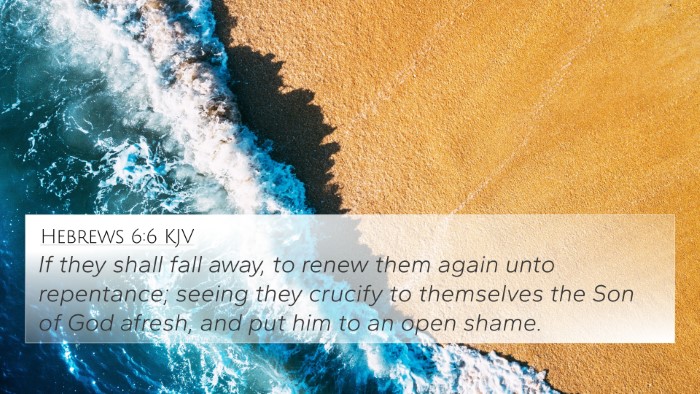Understanding 1 Kings 12:19
Verse: "So Israel rebelled against the house of David unto this day." (1 Kings 12:19)
Overview
This verse marks a significant turning point in the history of Israel, illustrating the division of the kingdom after King Solomon's reign. It serves as a pivotal point that leads to the establishment of the northern kingdom of Israel, separate from Judah.
Commentary Insights
Insights from renowned public domain commentaries provide depth to our understanding of this verse:
- Matthew Henry: Henry emphasizes the rebellion as a fulfillment of God's prophecy concerning the divided kingdom. He underscores the inevitability of the division as a consequence of Solomon's sin and the people's desire for autonomy.
- Albert Barnes: Barnes points out that this rebellion against the house of David highlights the consequences of not heeding wise counsel. The people rejected Rehoboam's leadership, which led to a significant split in the nation.
- Adam Clarke: Clarke elaborates on the reasons behind the rebellion, noting both political and emotional factors at play. Clarke insists that the people's discontent and desire for a lighter yoke initiated this drastic separation.
Bible Cross-References
- 1 Kings 11:11-13: God's judgment on Solomon leading to the division of the kingdom.
- 2 Samuel 7:14-16: God's covenant with David highlights the significance of the house of David.
- 1 Chronicles 12:1-40: The account of the men of Judah coming to support David, contrasting the division later seen in 1 Kings.
- Hosea 1:4: The prophecy concerning the fate of Israel, linking the rebellion to further consequences.
- Matthew 12:25: Jesus references a kingdom divided against itself, contextualizing the completeness of the division's folly.
- Amos 5:1-2: A lamentation of the house of Israel, reflecting the sorrow of this division.
- Luke 1:32-33: A foreshadowing of restoration through Christ, who reigns over the house of Jacob forever, indicating hope amidst division.
Thematic Connections
This verse offers substantial material for thematic Bible verse connections:
- The stark contrast between unity and division: The rejection of Rehoboam represents a larger spiritual truth about the division between following God’s appointed leaders versus seeking personal autonomy.
- The sovereignty of God in historical events: The rebellion demonstrates that God’s purposes prevail even through human choices, echoing the sovereignty theme throughout scripture.
- The impact of leadership choices: The verse underscores how leadership decisions can lead to widespread consequences, a recurring theme in scripture, such as the failures depicted in 1 Samuel 8.
Applications for Study
For those using tools for Bible cross-referencing, understanding 1 Kings 12:19 is crucial:
- Utilize a Bible concordance to find related themes such as rebellion, division, and leadership.
- Cross-reference this verse for deeper insights into the political dynamics affecting Israel's spiritual state.
- Explore Bible reference resources that can enhance understanding of the context surrounding Israel's division.
- Cultivate skills in cross-referencing Bible study methods to examine parallels between kings and their respective leadership styles.
Conclusion
1 Kings 12:19 serves as a crucial nexus for understanding the historical, spiritual, and thematic ramifications of rebellion. By exploring its connections and utilizing comprehensive Bible cross-reference materials, one can appreciate the depth and continuity of biblical narratives.


